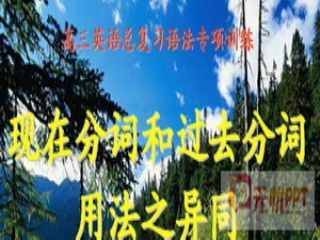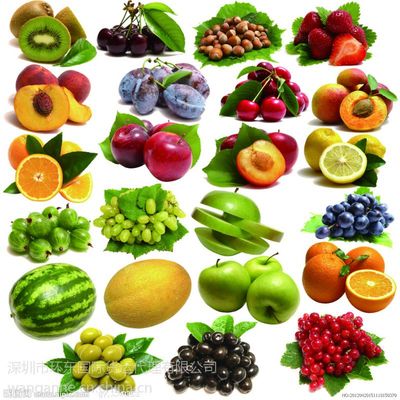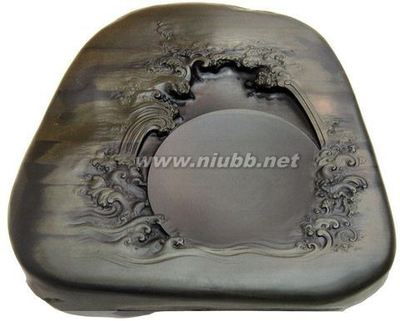两种形式的过去分词的不同用法
有一部分不规则动词有两种形式的过去分词,在用法上有一定的区别;还有的动词既是规则变化的,也是不规则变化的,有的在词义上有区别,有的没有区别,要引起高度注意,否则用错了自己还不知道。请参见下表:
两种不同过去分词的不同用法: | ||||
动词原形/过去式 | 过去分词1 (构成完成时态) | 过去分词2 (用作形容词或它用) | 例句 | |
get/ got | got/gotten(美式) | gotten用作定语时只能用gotten | gotten可以用作定语“得到的: His gotten money in a month is too less to meet his need. | |
light/lit | lit | lighted作定语是只能用lighted. | The fire was caused by a lighted match.(作定语) The fire is lit/lighted (放在be动词后作表语都可以) | |
rot/rotted | rotted | rotten作定语是只能用rotten | Food that has rotted is rotten.(rotted构成完成时) We can’t eat rotten food. (作定语或表语) | |
shrink/shrunk | shrunk | shrunken都可以 | shrunken可用作定语“皱缩的、缩小的”: She has a shrunken face. The old had shrunken cheeks. | |
drink/drank | drunk | drunken作定语 | I met a drunken man on the way. (作定语) He is drunk. And he is dead drunk under theinfluence of hard liquor.(可以用作表语或补足语) | |
strike/struck | struck | Stricken构成合成词 | The herds were struck by an epidemic.(构成被动语态) The farmer was struck by a snake. .(构成被动语态) The premier visited the earthquake-strickenarea.(作定语) | |
sink/sank | sunk | sunken只能用作定语 | His cheeks have sunk in.(构成完成时态) He was sunk in thought. (做表语) The old man has sunken cheeks.(作定语) | |
bend/bent | bended很少用这个形式 | bent | They are bent on learning English well.(可以作表语和定语)(bended少用作定语,bended很少使用) | |
bless/blessed | blessed/blest | blessed用作表语或定语 | blessed多用作定语“有福的”或“该死的” The three old persons are blessed ones. Will the blessed rain stop soon? | |
melt/melted | melt | molten只能用作定语 | molten用作定语“融化的”: The molten steel is flowing into the chute. | |
同一动词有不同的词义,规则变化和不规则变化之间有的词义区别很大: | ||||
动词原形 | 过去式 | 过去分词 | 例句 | |
bear生、出生 | bore | born作表语 出生于、天生的,生来的 | He was born in 1994. He is a Chinese-born American scientist. She was born in Canada. | |
bear生产,怀有;承担、负担;仍受 | bore | borne | She has borne three children. She bears deep proletarian revolutionary spirit for thepeople. The donkey bears a heavy burden every day. We must bear the responsibility of teaching students Englishwell and easily. He is always the first to bear hardships. I can’t bear for you to say such a thing before me.  The expense should be borne by our company. | |
lie躺,存在,位于 | lay | lain | He is lying on a bed. Snow lies thick on the field. A bright future lies ahead. Korea lies to the east of china. | |
lie撒谎 | lied | lied | You are lying, I guess. He lied about the accident to me. He is a bad man. He always lies. | |
hang绞死 | hanged | hanged | Hang you! 该死! The bad man was hanged last year. | |
hang挂,垂下 | hung | hung | He hung a picture on the wall. The ha ll is hung with red flags. Please hang the door on the hinge. He hung his head and admitted his guilt. | |
bind捆绑、凝固 be bound to一定要; be bound for某地 | bound | be bound to do 一定…;注定…;将要… | They are bound to carry out the plan. This is a bound volume of China Daily. We are bound to succeed. He is bound for Beijing. Where are you bound for? | |
bound限制、毗邻;跳跃, | bounded | bounded位于…; 蹦跳 | Jiangsu is bounded on the south by Zhejiang. His heart bounded fast with joy. The dog bounded towards the gate. | |
 爱华网
爱华网


